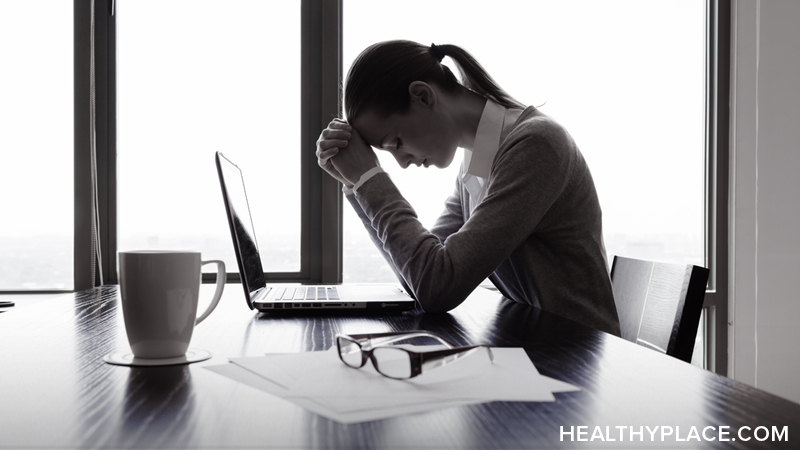Anxiety Causes: What Causes Anxiety?

What causes anxiety in one person may not cause anxious feelings in another. A variety of external, environmental, genetic, and brain chemistry factors contribute to a person's propensity to experience anxiety symptoms. Experiencing anxiety during a divorce, before a public performance, or giving a speech is normal, but some people tend to feel anxious about these events and other challenges more intensely than the typical person. Some even have anxiety attacks. Experts believe that these people may have a genetic predisposition toward anxiety, or perhaps have learned to feel anxious from a parent or other caregiver.
Of course, there's also those "nervous nellies" who are simply prone to worry. Maybe you know someone who likes to talk about and worry about the worst possible outcomes. This person's life isn't adversely affected by his or her focus on the macabre or doom and gloom – they simply seem to get some sort of enjoyment out of it. While environmental and other factors may contribute to the behavior of nervous nellies, these people tend to view anxiety, and talking about worries, in the same way those who enjoy gossiping view participating in talking about others flaws and activities -- enjoyable.
Environmental Factors as an Anxiety Cause
Environmental factors represent a major cause of anxiety for everyone – not just those prone to worry. Several environmental challenges and experiences contribute to anxiety:
- Death of a loved one
- Divorce
- Physical or emotional abuse
- Work stresses
- School stresses
- Stress surrounding financial burdens and money
- Natural disaster
- Public performance
- Giving a speech
- Fear of illness
- Stress in a personal friendship or family relationship
- Marriage
- Birth of a baby
Medical Factors as an Anxiety Cause
Certain medical conditions and the stress associated with them have long been a known anxiety cause. Some medical conditions that may cause anxiety include:
- Serious medical problem or illness
- Medication side effects
- Medical illness symptoms (some physical illnesses include anxiety as a symptom)
- Lack of oxygen caused by a medical condition, such as emphysema or a blood clot in the lung (pulmonary embolism).
Substance Abuse as an Anxiety Cause
Illicit drug use represents a major cause of anxiety. Using cocaine or illegal amphetamines can cause anxious feelings as can withdrawal from certain prescription drugs like benzodiazepines, oxycodone, barbiturates, and others.
Anxiety and Genetics
Strong evidence exists linking anxiety and genetics. In other words, children with at least one anxious parent, or another first degree relative with anxiety, tend to develop an inclination for it as well. Some studies indicate that people with abnormal levels of certain brain neurotransmitters may have a higher tendency to experience anxiety. When the neurotransmitter levels are not normal, the brain may react inappropriately at times, causing anxiety.
Become Familiar With What Causes Anxiety in You
The first step to controlling fear and worry is learning what causes anxiety in you specifically. Even if genetics predisposes you to feel anxious, external and environmental factors, such as medical conditions, substance abuse, or divorce and financial problems, can exacerbate your anxiety. Once you know what triggers your anxiety, you can then take steps to face it and stop it from having a negative impact on your life. Here's more information on the treatment of anxiety and where to find help for anxiety.
APA Reference
Gluck, S.
(2021, December 20). Anxiety Causes: What Causes Anxiety?, HealthyPlace. Retrieved
on 2024, June 20 from https://www.healthyplace.com/anxiety-panic/anxiety-information/anxiety-causes-what-causes-anxiety



